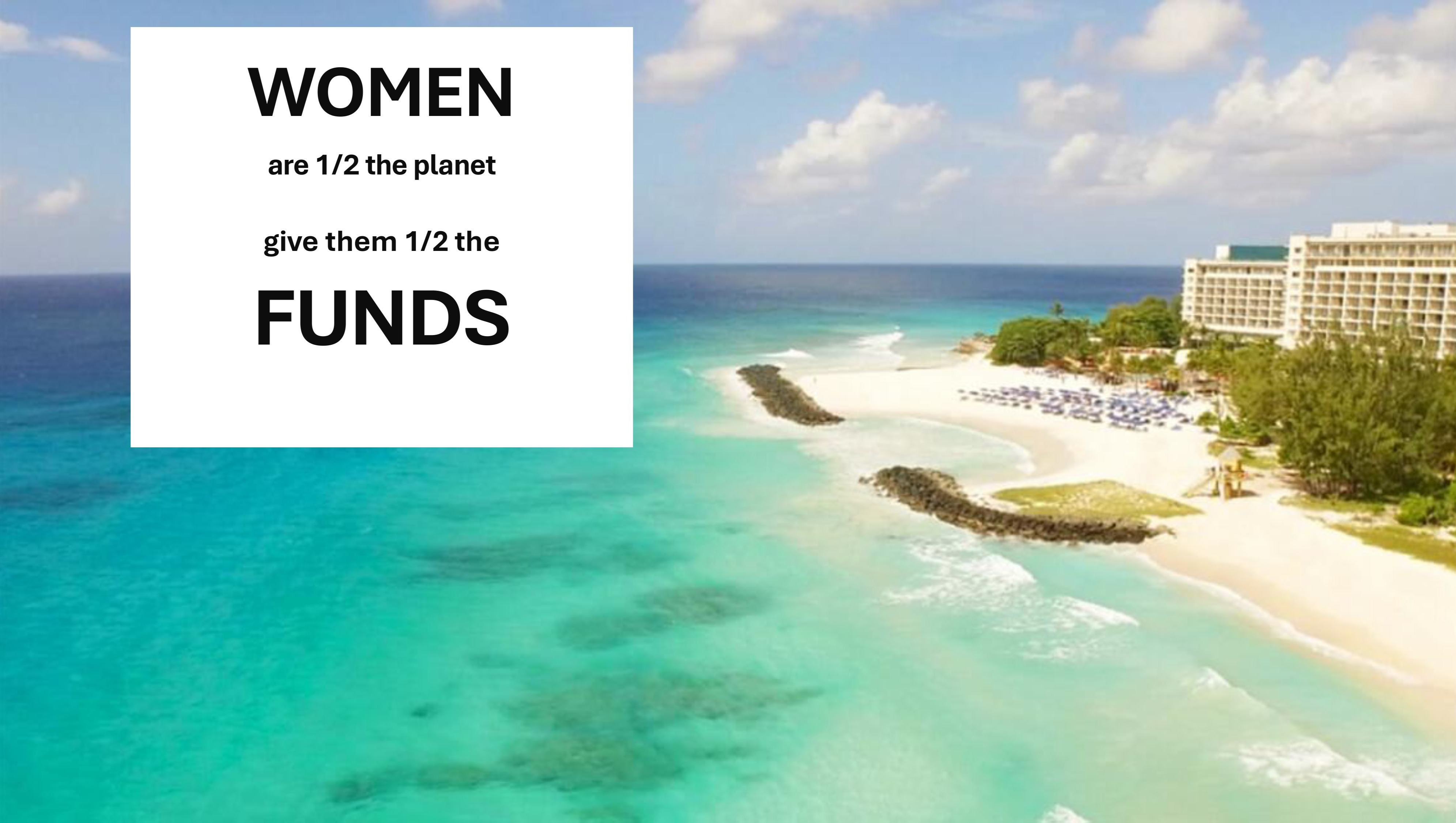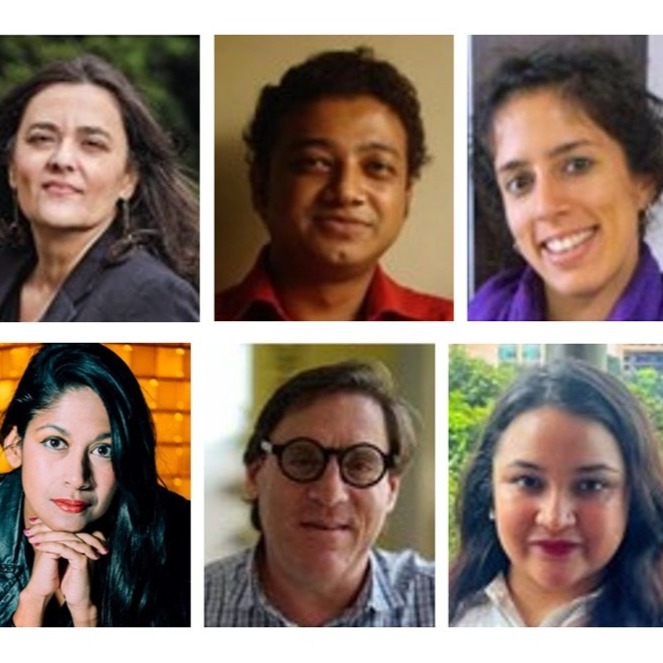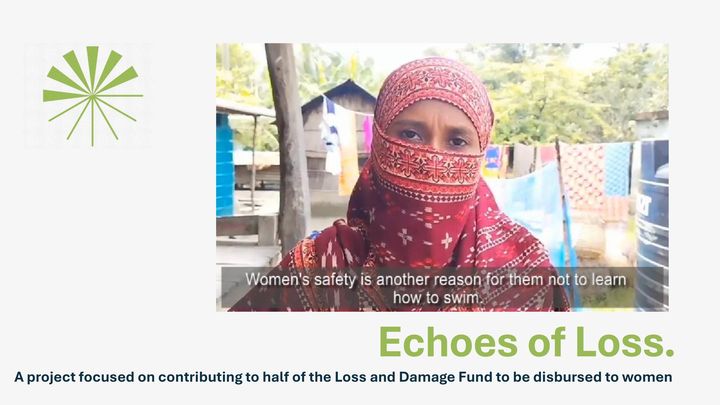Donation protected
Hi, my name is Sofia Castelo. I am a climate adaptation practitioner and co-founder of the EL Collective, which developed the 'Echoes of Loss' project. This integrated arts and research initiative documents the impact of climate change on women and girls and advocates for the direct disbursement of half of climate funds to women, including those for Loss and Damage.
See a video of the project: https://vimeo.com/950663014.
The first paper published under it can be seen here: https://www.frontiersin.org/journals/sustainable-cities/articles/10.3389/frsc.2024.1304535/full
I am fundraising to support two activities for the project: recording testimonies of flood survivors in Bangladesh and creating an installation at the Loss and Damage Fund Board meeting, advocating for the inclusion of direct disbursement of funds to women in the guidelines.
1. The Project
''Echoes of Loss'' is an integrated arts and sciences project focused on the impact of climate change on women in the Global South, particularly in South Asia, seeking to contribute to the Loss and Damage Fund disbursement guidelines. 50% of the Loss and Damage Fund must go directly to women and women-led organizations.
2. Activities
a) Artistic activities focused on documenting the testimonies of 20 women survivors of the 1991 floods in Bangladesh. This includes conducting interviews, videography, editing, and subtitling.
b) An installation at the 5th meeting of the Loss and Damage Fund Board, in Barbados on April 8-10, 2025. This high-impact intervention aims to create a powerful visual experience, similar in impact to the installations of Christo & Jeanne-Claude.

Text to be displayed on the canvas next to the Hilton Resort Hotel, the venue for the Loss and Damage Fund Board meeting, 8-10 April 2025, in Barbados.
3. Funding allocation
i. Interviews: €680
ii. Media: €770
iii.Travel: €1,600
iv. Installation in Barbados: €4,000
Total: €7,050
4. Background
In 1991, a cyclone devastated Bangladesh, resulting in the deaths of 140,000 people, of whom 90% were female. The impact of climate change on women is well-documented globally. This is mainly due to women having fewer resources, their reduced number in decision-making positions, and traditional gender roles, particularly those of caregivers. In many countries, girls are not taught how to swim, which is particularly dangerous in the case of floods. In Bangladesh, 70% of boys and only 30% of girls can swim.
In South Asia, women face heightened exposure as the region is on the frontlines of climate change. The 2022 floods in Pakistan submerged one-third of the country, ranking among the costliest global disasters. Six months later, 1.8 million people remained at risk. In some villages, women were not permitted to move to refugee camps for reasons of ‘honor', many faced the additional challenge of not knowing how to swim. Multiple agencies have attested that women and girls were disproportionately affected at all levels.
According to the UN, only 1.5% of climate finance is dedicated to women. Research in Bangladesh has shown that when funding is directed toward men, the outcomes for women are at best neutral and often harmful . This means that unless climate funds are explicitly allocated to women, they risk further worsening women’s lives. The Loss and Damage Fund Board must draft guidelines ensuring that 50% of the funds go directly to women and women-led organizations. Without such measures, there is a serious risk that disbursed funds will further undermine women’s livelihoods and well-being.
References
1. Ikeda, K. (1995). Gender Differences in Human Loss and Vulnerability in Natural Disasters: A Case Study from Bangladesh. Indian Journal of Gender Studies, 2(2), 171–193.
2. Rahman, A., et al. (2014). "The prevalence of naturally acquired swimming ability among children in Bangladesh: a cross-sectional survey." BMC Public Health, 14, 404.
3. World Bank. (2022). Pakistan: Flood Damages and Economic Losses Over USD 30 billion and Reconstruction Needs Over USD 16 billion - New Assessment. The World Bank, October 28, 2022.
4. OCHA, Office for the Coordination of Humanitarian Affairs OF United Nations. (2023). Pakistan: 2022 Monsoon Floods – Situation. Report 15 (2023).
5. France24. (2022). “A matter of honour: Women forced to stay in flooded Pakistan village”. France24, September 8, 2022.
6. Gallup. (2021). “Majority Worldwide Cannot Swim; Most of Them Are Women”. Gallup, July 23, 2021.
7. Water Aid. (2022). Climate emergency: Women and girls living in Pakistan flood zone suffering from urinary tract infections and reproductive complications in part due to lack of clean water, sanitation and hygiene.
8. Oxfam. (2022). “Carbon emissions of richest 1 percent more than double the emissions of the poorest half of humanity”. Oxfam.
9. Pitt, M. M., Khandker, S. R. and Cartwright, J. (2003). Does micro-credit empower women? Evidence from Bangladesh. Policy Research Working Paper 2998, The World Bank Research Group (March 2003).
5. Team
Sofia Castelo is a climate adaptation practitioner and landscape architect with over 20 years of experience designing/managing landscape and environmental projects across Europe, China, the U.S.A., Malaysia, and Australia. Sofia also develops artwork, such as the installation Kiosk, presented at the London Festival of Architecture 2008, and the project Middle Passage, which received the third prize in the international competition for the permanent memorial honoring survivors of slavery at the United Nations Headquarters in New York in 2013. Recently, in the field of climate change, she led the design of the Nature-based climate adaptation program for the urban areas of Penang Island, the first urban climate adaptation project to have been developed for Malaysia, which won the Climathon Global Cities Awards 2020 for the best global urban climate project that year (given by EIT Climate-KIC), and the KSAAEM award 2022 for the best environmental project by a city from the Islamic world.
Shama Rahma, Ph.D., is a London-based scientist, artist, performer, creative technologist, and futurist with Bangladeshi ancestry. Her multidisciplinary practice has led her to be the Artistic Director of the Art/Science creative production agency Jugular Productions, producing interdisciplinary shows, salons, installations, immersive experiences, and games. Bringing together this extensive knowledge work she founded NeuroCreate – using AI and Neuroscience in a symbiotic digital design to enhance human creativity, performance, and wellbeing. Shama was selected in 2019 as one of the top 20 Most Inspiring Women in Tech and won The Creative Visionary Award 2024 from AthenaFundX.
Kenneth Feinstein, Ph.D., is a media artist, theorist, and academic working on issues regarding our ethical relationship to Otherness and how technology plays a role in it. His work has been exhibited and won prizes at major film festivals such as the Edinburgh International Film Festival and the Oaxaca Film Festival. It has been shown in local and international museums and galleries, including at A Shaded View on Fashion Festival at the Centre Pompidou in Paris. In Southeast Asia, he has curated exhibitions at the National Visual Art Gallery, Malaysia the NTU School of Arts Gallery, Singapore, and Wei-Ling Contemporary Gallery, as well as at the SoA Gallery at Sunway University. He has taught media arts, theory, and experimental film at Parsons School of Design, the MFA Computer Arts program at the School of Visual Arts, NYC, Nanyang Technological University, Singapore, and Sunway University in Malaysia. Currently, Ken is an Associate Professor with the University of Leeds, UK. He has authored over 25 articles and chapters on media arts and media theory and one monograph, The Image That Doesn’t Want to be Seen. Most recently, he has centred his work on questions regarding Otherness and testimony in multiscreen documentary film installations.
Syeda Maliha Huq is a Bangladeshi media professional and documentarian. She has an MA in Visual Communication and Media Studies from Sunway University, in Malaysia, and a BA (Hons) in Communication specializing in Corporate Communication from the same university. Maliha has managed a team in Bangladesh during the COVID-19 pandemic conducting interviews and filming sightseeing for data collection and managed a team in Malaysia for final editing and sound design to complete the research. She interned with the Nobel Peace Prize Laureate Professor Muhammad Yunus at Yunus Centre in Dhaka, Bangladesh from January 2018 to March 2018. Maliha is working as a Digital Marketing Officer at Ascent Group in Bangladesh, with both international and Bangladeshi clients, planning and strategizing campaigns for various causes. She is passionate about working on Sustainable Development Goals and contributing to Bangladesh’s development, focused on empowering the underprivileged and protecting the environment by educating people through various creative campaigns.
Md Ashrafuzzaman, Ph.D., is a Bangladeshi university professor and researcher focused on gender issues and climate change. He holds a degree in social sciences from the University of Chittagong in Bangladesh, a master's degree in development studies (in the field of anthropology) from Lund University in Sweden, and a Ph.D. in climate change and sustainable development policies from the University of Lisbon. He is an associate professor in the Department of Anthropology at the University of Chittagong, Bangladesh.
Lia Gil Antunes is a researcher focused on the history of architecture from a gender perspective. She is currently a doctoral student at dARQ-UC, researching "The Women of the SAAL Process (1974-1976) in Portugal: Architects and Residents for the Right to Housing" (FCT). As part of the Women in Architecture Association, of which she is a co-founder, she organized and lectured in the short course "Earth as Home: Ecofeminism and Space" (2022-2023), an independent project of the Lisbon Architecture Triennial 2022 (DGArtes and CIG), which explored the connection between the climate crisis and gender. As an architect, she has designed museums and exhibitions. She was part of the team led by the museographer Elisabet Carceller, who won the Museum of the Year 2022 award from Acesso Cultura with the project Covilhã Museum. In 2024, Lia won the MAXQDA #ResearchForChange grant on Women Empowerment.
 Organizer
Organizer
Sofia Castelo
Organizer
Lisbon, 11
